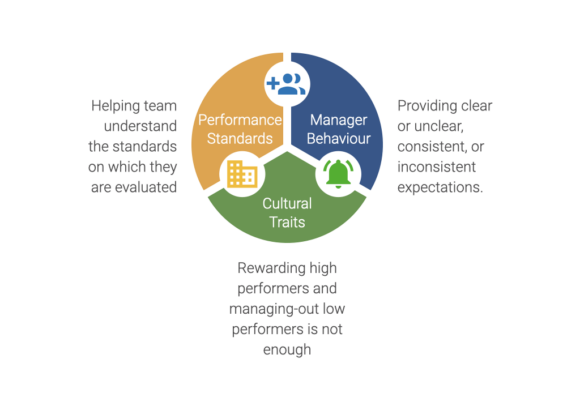The key to improving employee performance is helping them understand the standards on which they are evaluated. It is critical to foster a belief that they and their colleagues are being treated fairly by the system. In fact, the components of the system such as its design and structure are much less important. The understanding, fairness, and credibility are what make or break the system.
Managers should emphasize the positive aspects of employee performance and personality during reviews. This supports maximize positive impact on individual performance. Focusing on the negative, can decrease performance. When it is without providing specific suggestions for improving performance weaknesses, it is even worse.
Manager behaviors and strategies affect individuals’ abilities to do their jobs. Specifically in an immediate, day-to-day sense it has the most impact on performance. Managers can push up or pull down the performance of their direct reports. Especially by providing clear or unclear, consistent, or inconsistent performance expectations.

The highest impact on performance is from cultural traits. Focus on encouraging risk and creating a free flow of information up, down, and across the organization enable performance. Treating strong and weak performers differentially impact a number of attitudes. That said, results have shown that a true high performance culture requires much more. Rewarding high performers and managing-out low performers is not enough.
Many different performance management systems will likely work equally well. What we have seen as the key to the success of the system, is that employees and managers understand the standards on which they are evaluated. The belief that the evaluation process is fair and credible.

